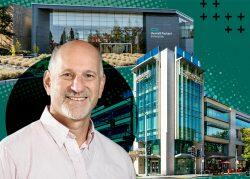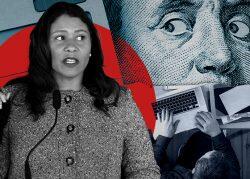The city of Palo Alto wanted more, businesses wanted less, but the sides settled on an office tax measure to bring in nearly $10 million a year.
After days of negotiations, the City Council voted 6-1 to put a business tax measure on the November ballot of 7.5 cents per square foot of office space for nonexempt companies above 10,000 square feet, the San Jose Mercury News reported.
The tax measure includes a cap of $500,000 a year and a 2.5 percent increase a year – to be applied to both the monthly rate and the tax cap – beginning in 2026.
Palo Alto expects the office tax to bring in $9.6 million a year in revenue, of which $5.2 million would go toward affordable housing and $3.2 million for public safety.
The compromise prevents business interest money from paying for opposition against the tax measure.
“We have come forward with an agreement that is higher revenue than what those parties wished this measure would be and less than what many of us had hoped,” Mayor Pat Burt said after the vote. “Our chances for success with voters drastically improve as a result of the compromise where we do not have opposition from the business community.”
Burt, a member of the ad hoc committee on tax measure negotiations, has advocated for a business tax for years, even before his time on the council.
Palo Alto remains the only major Bay Area city without a business tax.
“We rode with the chamber of commerce and are able to join together in agreement not to oppose the business tax,” said Dan Kostenbauder, vice president for tax policy at the Silicon Valley Leadership Group. “Our alliance won’t stand in the way of this opportunity for Palo Alto to finally have a business tax.”
The compromise rate is a far cry from the 11-cent tax measure council members initially proposed, which would have brought in $16.5 million a year. Residents urged the council to go for a higher rate.
Some council members also criticized the compromise at a lower rate. Councilman Tom DuBois argued $5 million for public housing won’t build many units.
“It really feels insufficient,” DuBois said. “The question council members have to ask themselves is: Is something better than nothing?”
Burt said the tax money would be “highly leveraged” to allow the city to qualify for regional, state and federal funds, which often require a local contribution or matching investment.
“When the local dollars become extremely leveraged,” Burt said, “that’s the backbone necessary to be able to qualify for those big dollars.”
— Dana Bartholomew
Read more


